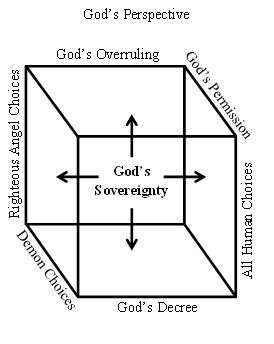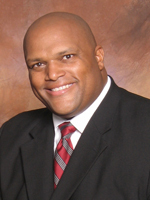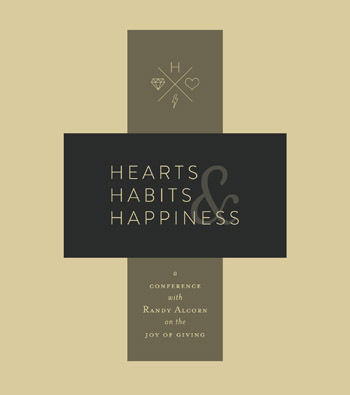Randy Alcorn's Blog, page 173
November 10, 2014
A Lesson Hard Learned: Being Content with Saying No to Truly Good Opportunities
 I used to say no to 95% of speaking and “let’s meet for coffee” and “please read my book” requests. Now it’s over 99%. The standard reply my assistant gives is one I came up with fifteen years ago: “Randy has to say no to the great majority of good opportunities so that he can say yes to the very few God wants him to do.”
I used to say no to 95% of speaking and “let’s meet for coffee” and “please read my book” requests. Now it’s over 99%. The standard reply my assistant gives is one I came up with fifteen years ago: “Randy has to say no to the great majority of good opportunities so that he can say yes to the very few God wants him to do.”
I believe this with all my heart, though it took me many years to learn it the hard way. Back then I would say yes to speaking engagements two years away, since the calendar was open, then the time would come, and I’d be buried in a book project and asking myself why I ever said yes to the speaking.
I once felt guilty about declining most requests, so I was reading a dozen books a year for endorsements, saying yes to friends who wanted me to speak, meeting people who were coming through Portland, etc. But then I was always behind writing my own books, and writing is my primary calling. Now I decline nearly all speaking requests (I travel and speak maybe five times per year, and often there’s a second angle to what I say yes to—staying extra days to see my kids and grandkids, getting vacation time with Nanci, etc.).
My advice is to care about people but use discernment, and don’t live to please them. We are to live out our lives before the Audience of One. In the end, His approval is the one that matters. If our goal is to hear others say, “Well done,” we won’t have time, energy and perspective to do what we need to do to hear Him say it. Paul said, “If I were still trying to please man, I would not be a servant of Christ” (Galatians 1:10).
The key to a productive and content life is “planned neglect”—knowing what NOT to do, and being content with saying no to truly good, sometimes fantastic, opportunities. This happens only when you realize how truly limited you are, and that you must steward your little life, and that of the best things to do on the planet, God wants you to do only a miniscule number (He’s infinite, you’re finite, remember?). I used to feel very bad about turning down great opportunities, but when I would say yes I would have to do all that extra preparation and travel, and then there’s recovery and catch-up time, so that speaking somewhere for 2-3 days can essentially take away two weeks of my life—two weeks away from book-writing.
I have horror stories of being talked into quick-turnaround writing projects and especially speaking events. For example, I once agreed to go to Seattle, as I live in the Portland area and was told “You can fly up at 3:00 PM, have dinner with us, speak and then be back at your house at 10 PM.” I finally said yes, and walked out of the meeting that night to thick fog. With cancelled flights then and the next day, and six hours on a Greyhound bus stopping every twenty minutes, I made it home exhausted, 36 hours after leaving. I learned a lesson that has proven true repeatedly: everything you say yes to takes far more time than they think, or you think!
Now, in the limited times I do speak, to minimize or eliminate preparation time, I make my coming contingent on doing Q&A’s, which I do with my Bible open in front of me. I turn to Scripture repeatedly, since it’s God’s Words not mine He says He will use to accomplish His purpose (Isaiah 55: 11). By having less prepared to say, I give God more opportunity to speak. I tell them, “I’m a writer, not a speaker, and to find the time to prepare, travel, speak and recover would take too much time from my writing.”
By saying no to speaking and appointments and any writing that’s off-center the great majority of the time, I tell the Lord, “I want to be available for you to surprise me with those occasional wonderful things you want me to say yes to but which I couldn’t anticipate and couldn’t ever have done if I’d said yes to many of those good things people wanted me to do.” That has happened often in the last number of years, in both writing and speaking, but had I not been ruthlessly saying no to all those good things, I wouldn’t have had any room to say yes to those few great things, often unforeseen ones, God wanted me to do.
On occasion I’ve received an email back after saying no that tells me, “We’ve been praying and God has made it clear you are the one who should speak to us/meet with us/read my book/write my book.” My response is always the same: “If God has spoken to you, He can speak to me too. Ask God to tell me what you think He told you, and if He does, I’ll do it. But unless He makes it clear, the answer remains no.” So far God has never changed my mind, turning a no to a yes.
Jesus says to his Father, "Here I am, I have come to do your will” (Hebrews 10:9). HIS will…no one else’s. May that be true of us too.
Learn to say, "No," and it will be of more use to you than to be able to read Latin. —Charles Spurgeon

Each blog regularly appears on my Facebook page. If you’d like to comment or see others’ comments, we invite you to join us there.
photo credit: derekbruff via photopin cc
November 7, 2014
Our Perspective and God’s Perspective
Before I get to today’s blog, I wanted to say a word about the discussion questions for my book hand in Hand that several of us worked hard to put together. They’re in the back of the book, but we’ve also posted them online, and even have a downloadable pdf with space to insert answers to questions.
I believe hand in Hand has potential for engaging group discussions more than nearly all the books I’ve written. I think it’s one of the few books that people with very different beliefs about sovereignty and free will might be comfortable with. People who are completely Arminian or Calvinist on every point will take issue with some things in the book. But many people will be able to handle my difference in perspective on some issues when they see agreement on others, and above all when they sense respect and accuracy in the conveying of positions that aren’t my own.
 Prayerful examination of the deep questions of God’s sovereignty and our choices ought to humble us, especially when it seems mysterious and we can’t see how everything fits together.
Prayerful examination of the deep questions of God’s sovereignty and our choices ought to humble us, especially when it seems mysterious and we can’t see how everything fits together.
Edwin Abbott’s novel Flatland concerns a world in which there are only two dimensions, length and breadth. There’s no depth. Eventually the narrator, a square, is visited by a three-dimensional sphere. Square cannot comprehend the third dimension until he’s taken to Spaceland to see it.
Astronomer Hugh Ross used a similar analogy concerning our difficulty understanding certain aspects of God’s Word. [i] While we live in four dimensions (length, breadth, depth, and time), God exists outside of both time and space, so He has reference points we can’t even imagine. Consequently, the coexistence of such doctrines as election and predestination, or sovereignty and free will—which to us can seem impossible (or at least logically absurd) because of our restricted frames of reference—is fully obvious to Him. (What isn’t obvious to God?)
Theories dealing with God’s choices and ours have apparently insurmountable problems—not because we’re so logical, but because we’re finite and therefore our logic is finite. Consider the argument that if God knows you’re going to buy a mocha at 3:09 p.m. tomorrow, then when the time comes you have no real choice. But suppose God exists not in one dimension of time but three. Hugh Ross states, “A three-dimensional time domain or its equivalent would enable God to predetermine every action of every human being while sustaining the operation of human choice." [ii]
You don’t have to agree with that conclusion to get the point that we’re extremely limited in our thinking.
I’ve attempted to illustrate our dilemma using two straight lines indicating God’s sovereignty and human choice. They don’t appear to touch each other, so they’re depicted as parallel lines that don’t intersect—or if they do, it’s outside of our vision.
We can’t imagine how these two things are compatible. Sure, God could have choices and we could have choices, but how could God’s choices be sovereign if we can oppose and violate them? This can frustrate us—or it can impart awe and wonder as we ponder a God who has the ability to see things with absolute understanding and to accomplish them with infinite power.

God sees multi-dimensionally. When He looks at what puzzles our brains with our flatland perspective, He may see something more like this:

As suggested in the six sides of this cube, God and His view of complete reality is much bigger than ours. (Of course, in reality, His view is infinitely bigger, and three dimensions aren’t nearly enough; I’m not trying to put God in a box but to take Him out of the one we often put Him in.) God sees forces constantly at work that we’re unaware of. He simultaneously sees and deals with all human choices and all demon choices, including Satan’s. He sees and deals with the choices of righteous angels. He makes choices Himself, decrees creatures’ choices, permits creatures’ choices, and overrules their choices if He so wishes.
This may make our heads spin, but it’s no challenge for God. He sees and works in other dimensions we don’t even comprehend. While we stare at those two lines wondering how they might intersect, He deals with countless billions of intersections of that which He decrees and permits related to the choices of His creatures, while He governs every detail of the physical universe in which we live, which is something like a hundred billion light years in expanse.
God sees and works in other dimensions we don’t even comprehend.
God reveals seemingly inscrutable or irreconcilable truths, which may confuse us but make perfect sense to Him. We should trust what He says, and let the greatness and beauty of His truth—too big for us to comprehend—prompt us to praise and worship Him.

Each blog regularly appears on my Facebook page. If you’d like to comment or see others’ comments, we invite you to join us there.
Sources:
[i] Hugh Ross, Beyond the Cosmos: What Recent Discoveries in Astrophysics Reveal About the Glory and Love of God (Colorado Springs, CO: NavPress, 1996), 52–53.
[ii] Ross, Beyond the Cosmos, 162.
November 5, 2014
The Life-Changing Power of God’s Word in the Life of a Suicidal 10 Year Old
 This is a raw and powerful testimony from Dr. Ron Archer. By age ten he was living in such pain he contemplated suicide. He has an amazing story. I encourage you to take eight minutes to hear his heart about God’s love for the downtrodden. No matter what we’ve been through, God is able to redeem us and His living and active Word will not fail to change us.
This is a raw and powerful testimony from Dr. Ron Archer. By age ten he was living in such pain he contemplated suicide. He has an amazing story. I encourage you to take eight minutes to hear his heart about God’s love for the downtrodden. No matter what we’ve been through, God is able to redeem us and His living and active Word will not fail to change us.
 Also, and completely unrelated, I want to invite anyone near Portland, Oregon area to a free three-session conference (no registration required, just show up) at Good Shepherd Community Church this weekend, November 8 and 9. Good Shepherd is our home church, where I was one of the two original pastors when we started the church on May 1, 1977.
Also, and completely unrelated, I want to invite anyone near Portland, Oregon area to a free three-session conference (no registration required, just show up) at Good Shepherd Community Church this weekend, November 8 and 9. Good Shepherd is our home church, where I was one of the two original pastors when we started the church on May 1, 1977.
In each session I’ll be interviewed by lead pastor Alan Hlavka, answering questions about giving and how it affects our hearts, habits and happiness. The emphasis isn’t on the duty of giving, but the joy of giving.
I’ll open God’s Word in response to the questions. The sessions are at 5:00 p.m. on Saturday, and 9:00 & 10:45 on Sunday. (These are the normal weekend service times, but each session will be different, building on the previous, like a conference, so they won’t be the normal duplicate services.)
For more information see www.goodshepherdcc.org.
Here’s a short video I recorded with my friend Alan Hlavka, about the conference and the joy of giving:
I hope to see some of you there! Six of my books (including two new ones) will be sold, at $5 each, with all the proceeds going to the church. I’ll be signing books in the foyer after each service, so feel free to drop by and say hi!

Each blog regularly appears on my Facebook page. If you’d like to comment or see others’ comments, we invite you to join us there.
November 3, 2014
Brittany Maynard, age 29, has taken her life here in Portland, Oregon

It was announced late Sunday afternoon that on Saturday, 29-year-old terminally ill Brittany Maynard chose to end her life under Oregon’s physician assisted suicide law. It’s heavy on my heart that this happened only minutes from where Nanci and I live. I am very sad for Brittany and her family. I’m also sad for the way her case has been used to promote the legitimacy of doctors facilitating people’s suicides, and how this changes the nature of the medical profession.
Many of you know that Brittany had made videos talking about why she moved to Oregon to have the legal right to die on her own terms. Several days ago she made another new video with an update. As I watched her video, my heart truly went out to her. I have no desire to judge or criticize.
Many people are angry at those who don’t believe in physician assisted suicide. At the same time, Brittany did not make this a private decision, but a very public one, so it forced the issue into public debate. She chose to go public as an example to others of how they might choose to end their lives.
Two decades ago I joined others, including many physicians, in expending a lot of time and effort to oppose Oregon’s move to become the first place in human history (yes, even before the Netherlands) to legalize physician assisted suicide. We failed, obviously.
Here is what I wrote exactly twenty years ago today, on November 3, 1994, a week before the ballot measure was voted on—some of the points are still relevant to legislation being proposed in other states.
A week later, November 10, 1994, almost exactly twenty years ago, was the day Oregon became the first jurisdiction on the planet to legalize physician assisted suicide. I wrote an article and gave a public presentation called “Who do we think we are?” (You can tell how old it is from the fact that I several times indicate “OH transparency,” OH as in OverHead projector, when that was still cutting edge technology. :)
 Please listen carefully to the words of Joni Eareckson Tada, who Nanci and I deeply love and respect. As a quadriplegic for forty-seven years, and a cancer survivor, Joni has known more than her share of suffering. Here’s what she had to say about the Brittany Maynard situation and physician assisted suicide.
Please listen carefully to the words of Joni Eareckson Tada, who Nanci and I deeply love and respect. As a quadriplegic for forty-seven years, and a cancer survivor, Joni has known more than her share of suffering. Here’s what she had to say about the Brittany Maynard situation and physician assisted suicide.
That many people responded angrily to Joni’s thoughtful viewpoint demonstrates a remarkable disregard for the fact that she speaks out of a life not only of great suffering but also great compassion. It’s a short step from affirming people have the right to take their lives with the aid of physicians to affirming society has the right to end lives of those that we don’t believe have sufficient “quality of life.”
Finally, while we’re talking about old articles, I wrote one on euthanasia in 1986, citing relevant Scripture. If you’re interested, here it is. I talk about the difference between taking a life and permitting a death, and that we need to be careful not to play God. Most of it, I think, remains as relevant now as it was then.
Some final thoughts to consider—God is the giver and taker of life. “The days of humans are determined; you have decreed the number of their months and have set limits they cannot exceed” (Job 14:5). David prayed, “Your eyes saw my unformed substance; in your book were written, every one of them, the days that were formed for me, when as yet there was none of them” (Psalm 139:16). In Acts 17:35 Paul says of God, “he himself gives to all mankind life and breath and everything.”

Each blog regularly appears on my Facebook page. If you’d like to comment or see others’ comments, we invite you to join us there.
October 31, 2014
You Can Be Part of Changing Lives by Giving a Simple Shoebox Gift
Our family loves Operation Christmas Child (OCC). We’ve been packing shoeboxes for years. It was important for my husband and me to teach our children the value of giving and helping others.
The shoeboxes are distributed to children in war-torn and famine-stricken countries. Each shoebox is an expression of God’s amazing love for hurting boys and girls in desperate need of hope and knowing that someone cares. The children are also told about the greatest gift of all—the Good News of Jesus Christ. Many hearts are transformed after hearing a clear presentation of the Gospel. These children are invited back to their local church to participate in The Greatest Journey, a discipleship and evangelism program.
Franklin Graham’s book Operation Christmas Child – A Story of Simple Gifts tells how a simple shoebox gift has changed the lives of those who receive them.
Here are a few stories from the book:
Children of the Tepihuan Indians in Mexico had never seen a gift, much less received one. The team stared in wonder as the children stood in silence, not knowing what to do. They had to show them what to do and how to use the toys. When they heard music boxes humming and harmonicas playing they were mesmerized.
Most enduring though was to watch their faces as the Christmas story was presented. This was the first time they had heard the name of Jesus. God’s Word and love turned this little town inside out.
***
Vladimir grew up emotionally broken, with no hope, in Russia. His parents were alcoholics, so at three he and his sisters were put in an orphanage. He and his roommates shared many things: one bath a week in dirty water, one towel never clean or dry, a dreadful existence accompanied by empty stomachs and lonely hearts. They knew they weren’t loved.
When OCC delivered shoeboxes he thought, "Wow, somebody really packed this just for me? That someone, outside my life, would care was unimaginable." The box was filled with things he thought he would never possess. What meant the most was the toothpaste. It smelled so good—like bubble gum—so he ate the entire tube at once. It filled the hole in his stomach. Then he found a brand new towel (washcloth to Americans). To think he could own his own personal towel was more than he could have ever hoped for and he cherished and guarded it. He and his sisters were adopted by a couple in the US and now they have a family who loves them.
***
Bismarck was from Nicaragua and at 10 years old he received a shoebox. He was ecstatic and never imagined the effect it would have on the rest of his life. His most prized gift was a soccer ball. He began attending Sunday school and asked Jesus into his heart. At 13 he felt that God wanted him to study the Bible and attend Bible college. He began holding meetings and reading Bible stories, and used the same soccer ball to reach out to the gangs in the area and many came to Christ. The Bible study group became the Siloe Church where Bismarck serves as youth pastor.
***
In Kosovo the bitter conflict had driven thousands to become refugees. The team visited a warehouse where families had found shelter. One little boy was very happy—inside his shoebox was a pair of shoes that fit perfectly. When he showed his mother she cried, as that morning she had cut cardboard soles to fit his worn-out shoes. When she read the “Greatest Gift of All” booklet, she gave her heart to Christ.
 ***
***
If you would like further information on how to become involved with OCC go to the Samaritan's Purse site. The collection week for the shoeboxes is November 17-24 and you can find collection centers for your area at this website.
Consider being a part of changing lives through the power of a simple shoebox gift.
Sharon Misenhimer
EPM Staff
Photos courtesy of Samaritan's Purse
October 29, 2014
Superheroes, Heresies and the God-man

One of our Eternal Perspective Ministries staff members is Julia Stager. Julia holds a Master of Arts in Biblical and Theological Studies from Western Seminary and makes a great contribution to EPM. Julia graduated with highest honors last spring and received the Senior Achievement Award. This fall she is continuing her studies at Western Seminary as a Masters of Theology student, and we’re honored to work with her.
Because of my respect for her as a person and as a biblical thinker, I asked Julia to begin what will be a regular video blog to express her personal, biblical and theological perspectives. She has a great deal to offer, and I’m really excited about her doing this.
Julia’s first video is “Superheroes, Heresies and the God-man,” and in this video she talks about some common misconceptions when it comes to understanding Jesus as both God and man. We’ll be posting a new video from Julia every other week.
I hope you’ll look for Julia’s regular blogs and pass them on through your social media and other outlets. I respect Julia and love to hear what she has to say—I think you will too.
If you’re interested in watching the rest of Julia’s videos, I encourage you to subscribe to her YouTube channel: Crossover.

Each blog regularly appears on my Facebook page. If you’d like to comment or see others’ comments, we invite you to join us there.
October 24, 2014
The Beautiful Intertwining of God’s Sovereignty and Human Free Will
 The biblical writers share some, but not all, of our theological dilemmas. Job, David, Habakkuk, and others raise the problem of evil and suffering. But they seem to struggle less with the notion that God’s sovereign control would jeopardize human choice. To them, God has unlimited freedom.
The biblical writers share some, but not all, of our theological dilemmas. Job, David, Habakkuk, and others raise the problem of evil and suffering. But they seem to struggle less with the notion that God’s sovereign control would jeopardize human choice. To them, God has unlimited freedom.
It’s biblically accurate to say that God’s choices vastly outweigh human choices, since he is all-powerful and we are very limited in power. If this view represented only God’s intrinsic power in contrast to that of his creatures (who have no intrinsic power, only what God has granted them), it would be perfect. But this view could also lead us logically to negate what the Bible says about meaningful human choice. It’s absolutely true to say the Creator’s choices are far weightier than his creatures’ choices. But you cannot read the Bible without concluding that human choices really do matter.
In this 11-minute video, I speak from Acts 4, Philippians 2 and Colossians 1, about God's sovereignty and meaningful human choice, related to my book hand in Hand:

Each blog regularly appears on my Facebook page. If you’d like to comment or see others’ comments, we invite you to join us there.
photo credit: WanderingtheWorld (www.ChrisFord.com) via photopin cc
October 22, 2014
The Situation in Houston and the Erosion of Religious Liberties
 You may be aware of the situation in Houston, Texas, where five pastors who have been vocal in opposing the Houston Equal Rights Ordinance (HERO) were subpoenaed by the mayor, demanding that they hand over materials related to what they may have said about gay and lesbian issues, and about the mayor herself. Hopefully this will serve as a wake-up call to those who imagine there has been no serious erosion of religious liberties in America.
You may be aware of the situation in Houston, Texas, where five pastors who have been vocal in opposing the Houston Equal Rights Ordinance (HERO) were subpoenaed by the mayor, demanding that they hand over materials related to what they may have said about gay and lesbian issues, and about the mayor herself. Hopefully this will serve as a wake-up call to those who imagine there has been no serious erosion of religious liberties in America.
Al Mohler offers a perspective worth reading:
Sermons Are “Fair Game” in Houston — The Real Warning in the Subpoena Scandal
The scandal over the subpoenas issued to several Houston-area Christian pastors continues, even after the city refiled legal documents, removing the word “sermons” from the demand. They have clearly not removed the scandal from their city, and from the administration of Mayor Annise Parker. As the mayor’s own comments make abundantly clear, she stands at the center of the scandal.
When news broke earlier this week that the attorneys working for the City of Houston had issued subpoenas to pastors for sermons, I was fairly certain that some mistake had been made. When the actual text of the subpoena came to me, I could hardly believe my eyes. Here was a legal demand, sent to Christian pastors in the name of one of America’s largest cities, to surrender “all speeches, presentations, or sermons related to HERO (an anti-discrimination ordinance), the Petition, Mayor Annise Parker, homosexuality, or gender identity prepared by, delivered by, revised by, or approved by you or in your possession.”
That subpoena is nothing less than ruthless thuggery, exercised by an elected public servant and her city attorney. And that thuggery has been done in the name of the people of Houston, Texas.
Read the rest of Mohler’s article.
Russell Moore writes, “The separation of church and state means that we will render unto Caesar that which is Caesar’s, and we will. But the preaching of the church of God does not belong to Caesar, and we will not hand it over to him. Not now. Not ever.”
Also check out Thom Rainer's perspectives in Seven Good Things About the Houston Subpoena Controversy.

Each blog regularly appears on my Facebook page. If you’d like to comment or see others’ comments, we invite you to join us there.
photo credit: Katie Haugland via photopin cc
October 20, 2014
Avoiding Sexually Explicit Media and Pursuing Holiness
 I am deeply concerned about the number of God's people who are opening their lives up to popular television programs, movies and books that are sexually explicit. The thing many modern Christians seem most afraid of is that we won’t be in the cultural “know,” that we will be “out of it” and consequently uncool. What we should fear more is being unholy and therefore irrelevant to a world that needs to see true followers of Jesus, not people who are just like the world except they attend church. “You are the salt of the earth, but if salt has lost its taste, how shall its saltiness be restored?” (Matthew 5:13).
I am deeply concerned about the number of God's people who are opening their lives up to popular television programs, movies and books that are sexually explicit. The thing many modern Christians seem most afraid of is that we won’t be in the cultural “know,” that we will be “out of it” and consequently uncool. What we should fear more is being unholy and therefore irrelevant to a world that needs to see true followers of Jesus, not people who are just like the world except they attend church. “You are the salt of the earth, but if salt has lost its taste, how shall its saltiness be restored?” (Matthew 5:13).
Do you wonder about what is and isn't God’s will for your life? Here’s one thing we don’t have to wonder about: "For this is the will of God, your sanctification: that you abstain from sexual immorality; that each one of you know how to control his own body in holiness and honor” (1 Thessalonians 4:3-4).
I appreciate John Piper’s stance in his answer to a question regarding whether Christians should watch the popular but explicit TV show Game of Thrones.
The closer I get to death and meeting Jesus personally face to face, and giving an account for my life and for the careless words that I have spoken (Matthew 12:36), the more sure I am of my resolve never intentionally to look at a television show or a movie or a website or a magazine where I know I will see photos or films of nudity. Never. That is my resolve. And the closer I get to death, the better I feel about that, and the more committed I become.
Frankly, I want to invite all Christians to join me in this pursuit of greater purity of heart and mind. In our day, when entertainment media is virtually the lingua franca [common language] of the world, this is an invitation to be an alien. And I believe with all my heart that what the world needs is radically bold, sacrificially loving, God-besotted, “freaks” and aliens. In other words, I am inviting you to say no to the world for the sake of the world.
The world does not need more cool, hip, culturally savvy, irrelevant copies of itself. That is a hoax that has duped thousands of young Christians. They think they have to be hip, cool, savvy, culturally aware, watching everything in order not to be freakish. And that is undoing them morally and undoing their witness.
So here are 12 questions to think about, or 12 reasons why I am committed to a radical abstention from anything I know is going to present me with nudity.
(Full Article: 12 Questions to Ask Before Watching Game of Thrones)

Each blog regularly appears on my Facebook page. If you’d like to comment or see others’ comments, we invite you to join us there.
photo credit: Yannig Van de Wouwer via photopin cc
October 17, 2014
The Best Theological Label Is “Berean”
Today’s blog is an excerpt from my new book hand in Hand: The Beauty of God’s Sovereignty and Meaningful Human Choice.
When Emerson wrote “A foolish consistency is the hobgoblin of little minds,”[i] he was challenging us to accept truth even when it requires us expanding our minds and breaking from our tidy little systems. Good words for Bible students.
 William Symington wrote, “Our object should not be to have Scripture on our side but to be on the side of Scripture; and however dear any sentiment may have become by being long entertained, so soon as it is seen to be contrary to the Bible, we must be prepared to abandon it without hesitation.”[ii] Our allegiance to a particular theological system can hinder this process.
William Symington wrote, “Our object should not be to have Scripture on our side but to be on the side of Scripture; and however dear any sentiment may have become by being long entertained, so soon as it is seen to be contrary to the Bible, we must be prepared to abandon it without hesitation.”[ii] Our allegiance to a particular theological system can hinder this process.
The Berean Christians were commended for carefully examining, in light of the Scriptures, the teachings of the apostle Paul (see Acts 17:11). This is a man who eventually wrote thirteen inspired biblical books. How much more should we evaluate the teachings of everyone else we read or listen to!
We can benefit greatly from the work of Bible scholars and authors. I certainly have. But we shouldn’t search the writings of Calvin or Wesley to examine whether a teaching is true; we should search the Scriptures.
It was in an Arminian church where I, as a teenager, found God (though now I think of it more as him finding me). Imagine a one-to-ten continuum in which one represents pure Arminianism and ten is pure Calvinism. (I’m speaking now only of the orthodox versions of each.) On that scale, I began at around two and have since settled at around eight.
I attended Multnomah Bible College and Western Seminary. Each had faculty members from across the Arminian-Calvinist spectrum. The professor who influenced my approach to reading Scripture more than any other was not a Bible or theology teacher. It was Ed Goodrich, my Greek prof at Multnomah, who often told us, as we translated the entire New Testament over the course of three years, “Better to be at home with your Bible and not your theology, than to be at home with your theology and not your Bible.” Time and again we would grapple with the proper translation and meaning of texts—the temptation was always to see the text in light of the doctrine we’d been taught rather than letting the text change our doctrinal views.
I love studying theology. But if the Bible never challenges us to rethink our theology, it’s because our theology, not our Bible, is our authority. We should seek to change that.

From Eternal Perspective Ministries
One of the most perplexing theological questions—Is it possible to reconcile God’s sovereignty with human choice?—is also one of the most personal. A careful guide through Scripture, hand in Hand shows us why God’s sovereignty and our choices were meant to go together.
Randy’s new book hand in Hand is now available from EPM for $11.99 (retail $14.99).
References
[i] Ralph Waldo Emerson, The Essay on Self-Reliance (East Aurora, NY: Roycrofters, 1908), 23.
[ii] Roy Blackwood, William Symington: Penman of the Scottish Covenanters (Grand Rapids, MI: Reformation Heritage Books, 2009), n. p.
photo credit: Cindee Snider Re via photopin cc




